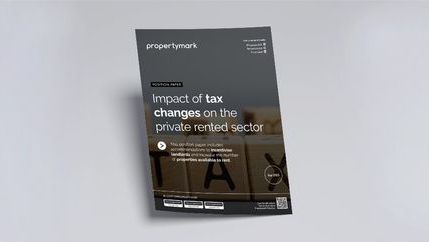
Watch a recording of the session on parliament.tv →
Give good agents a level playing field
Propertymark members already play a vital role in improving their sector by setting the standard for professional property management: choosing voluntary regulation, achieving industry qualifications, and building best practice into their businesses.
However, whilst property remains an unregulated sector with nothing to stop rogue operators entering the market, and enforcement from overstretched local authorities remains patchy, unscrupulous businesses are free to compete with competent and compliant agents.
Douglas emphasised to the Committee that a fundamental aim of our long-term campaign for agent regulation and mandatory minimum qualifications is to create a fair and equal marketplace which will benefit both agents and consumers.
Positive collaboration will deliver the best results
In a frank exchange with MPs, Douglas urged a move away from adversarial language and an exclusive focus on poor practice now that the Act is in place. Instead, the UK Government must identify and highlight best practice, and the work of professional bodies like Propertymark, so consumers and other stakeholders have a clear picture of what ‘good’ looks like in the sector.
The unique role of agents in educating landlords and tenants, and embedding high standards, must be recognised. Douglas cited evidence from a Propertymark member in Cardiff, which saw a 10% increase in its fully managed portfolio when the Renting Homes (Wales) Act 2016 came in, demonstrating the value of agents in supporting the sector through significant changes.
DHS and Awaab’s Law aren’t major worries
Most agents and landlords already comply with current property standards and aim to provide a good service to their tenants by completing repairs in a reasonable time, so the introduction of the Decent Homes Standards and the repair timelines of Awaab’s Law are unlikely to require significant operational changes.
Difficulties with implementation are more likely to stem from a lack of damp and mould specialists and other contractors, who are essential to make the reforms work.
To mitigate this, the UK Government should plan a phased introduction of the new rules, supported by clear guidance, to allow for capacity to be scaled up to meet demand.
Tax and MEES are the root of elevated costs
Several members of the panel drew attention to the steady increase in financial and legislative burdens on agents and landlords over the last decade, and Douglas highlighted the impact of tax changes and Minimum Energy Efficiency Standards (MEES) in particular.
Increasing compliance requirements, the loss of tax incentives, and the overarching cost of living crisis have made it more challenging for landlords to cover their costs and invest in upgrades, such as energy efficiency measures.
Many PRS homes, especially those that are older, in rural locations, or have lower property values, will require significant investment to meet a target of EPC C. To ensure repair and energy-efficiency incentives are properly aligned, it is essential that there is a review of the tax and cost framework for landlords.
Inventories overlooked in the Renters’ Rights Act
Propertymark would have liked to see a requirement for professional inventories, or check-in and check-out reports, included in the legislation.
Thorough property inventories provide reassurance to tenants that they will not be held responsible for any existing damage and provide clear guidance and understanding so tenants know what is expected of them when it comes to maintaining the property. Failure to arrange a robust inventory makes it much harder to prove when damage to a property occurred and who is responsible, increasing the probability of disputes arising.









